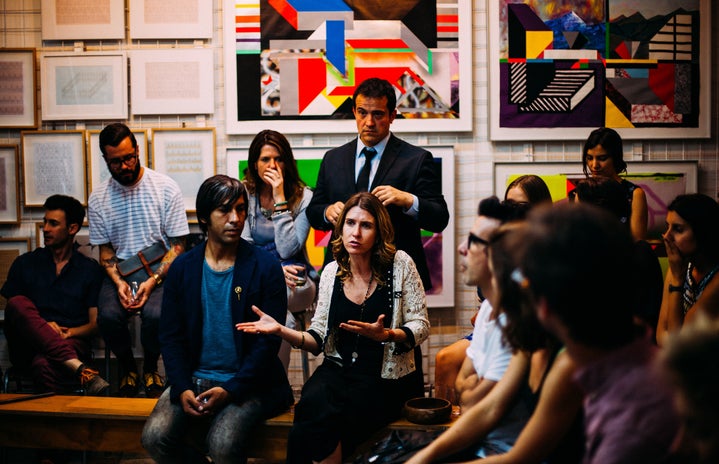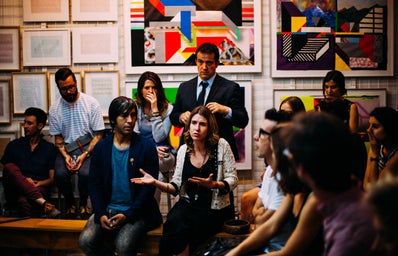I have been wanting to write something like this for a long time now, but I never felt quite qualified. I am a white 20-year-old woman from suburban Minnesota, raised by wealthy college-educated parents who live in an affluent, mostly white neighborhood. What do I really know about racial inequality? How can I possibly testify to what it is like to be a person of color in the United States? Aside from the stories in the news, have I ever even witnessed racism first-hand?
I recently came to the conclusion that not only am I qualified to explore and speak out about these matters, but I am exactly the type of person who should. You see, myself and every other white person in the United States possesses a certain type of privilege that our peers of color do not. White privilege is a very concrete reality that comes along with being viewed as “the norm” in America. It makes life easier in ways that we shouldn’t even have to think about. For example, I have never had to fear for my life when getting pulled over for speeding. I can also say with about 99.99% confidence that my unarmed brother will not be shot and killed while out for his daily jog. The fact that I genuinely have to think about whether or not I have witnessed racism is evidence enough of privilege. My friends of color— whether they be black, Asian, Indian or anything other than blatantly white— experience the reality of prejudice in this country every single day.
This is frustrating. Not just frustrating, but infuriating. Thinking of all of the people that I have loved and do love who are funny, interesting, kind, and smart being immediately labeled by their complexion makes my blood boil. These feelings of anger and frustration, however, are almost always followed by feelings of guilt and shame. Guilt that I, by seemingly random chance, was born white in a racist society. Shame that people who share my skin tone sometimes feel a delusional sense of superiority over others. These feelings of shame and guilt are exactly what stop people from fully acknowledging their privilege. It doesn’t feel good, so they choose to ignore it.
Ignorance, in this case, is the enemy. It is easy to be complacent about something that you are not educated about. If you are not educated, you may not see racial inequalities as a problem in the United States. In the words of author David Gaider, “privilege is when you think something is not a problem because it is not a problem for you, personally.”
So, if racism isn’t a “personal problem” for you, how can you help to combat it? For starters, educate yourself. Review your instagram feed. How many people of color in leadership positions are you learning from? Allow yourself to be exposed to a reality that is not your own, even if it is through the safety of social media. Instead of denying the experiences of your peers, learn from them. Get curious. Read books by black authors. Google things. Do your own research. You will never know first-hand what it is like to be a race other than your own, but by educating yourself, you will be more readily able to identify injustices and sympathize with your peers.
Once you have a basic understanding of racial inequality in the United States as a whole, begin to challenge your own personal biases. We all have them, as much as many of us would like to deny it. Begin to reflect on your biased thoughts. What led you to come to a conclusion about that person so quickly? Was your judgement warranted by anything concrete? In order to combat judgemental thoughts, it is important to address them as just that: judgemental. Nobody’s mind is a perfect place, but with self-reflection and education, it is possible to unlearn biased beliefs that are the subconscious result of living in a prejudiced society.
Ultimately, the most important thing to do with white privilege is to take action. We can sit and discuss and wallow in our privilege, or we can use it as a tool to benefit those without it. Advocate and take action against racial injustice. Elect people of color into government positions. Put yourself into settings where you can engage with people who have diverse backgrounds. Learn from others. Educate others. As American author Bell Hooks once said, “privilege is not in and of itself bad; what matters is what we do with privilege.”
You are qualified to speak about these things. You are qualified to be curious. Do not allow your race or your privilege to inhibit your willingness to speak up for what is right.


